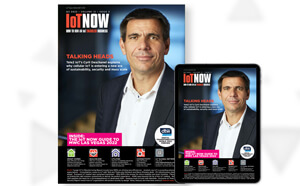HERE Technologies, the location data and technology platform, announced its further commitment to improving the safety of road users by helping global car manufacturers reach higher New Car Assessment Programme (NCAP) scores with a tailored set of location-based products.
According to the World Health Organisation, 1.3 million people die each year as a result of road traffic crashes. Between 20 and 50 million more people suffer non-fatal injuries, with many incurring a disability as a result of their injury. An increase in average speed is directly related both to the likelihood of a crash occurring and to the severity of the consequences of the crash. For example, every 1% increase in mean speed produces a 4% increase in the fatal crash risk and a 3% increase in the serious crash risk. The death risk for pedestrians hit by car fronts rises rapidly (4.5 times from 50 km/h to 65 km/h). In car-to-car side impacts the fatality risk for car occupants is 85% at 65 km/h.
New Car Assessment Programmes are voluntary vehicle safety performance programs that rate the safety of new passenger vehicles sold in their regions. NCAPs award the well-known ‘star ratings’ based on a vehicle’s performance in a variety of tests, including crashes and impacts with pedestrians.
The European and Australian NCAPs have recently updated their protocols to include additional requirements for speed assistance systems to further help avoid crashes. The current star ratings take into account how vehicles are adapting to speed limits including conditional ones (e.g. weather, time, distance, school zones and implicit speed limits).
Beginning in 2023, the European and Australian NCAPs will assess if speed assistance systems inform drivers about the features of every road (e.g. curves, roundabouts, junctions, traffic lights and stop signs) and a range of hazardous situations (e.g. traffic jams, construction sites, accidents ahead, stopped vehicle on hard shoulder and objects on road) with sufficient lead time to adapt their speed accordingly. To achieve top scores from 2023 onwards, vehicles with speed assistance systems will also have to operate with data beyond the line of sight and have access to regular map and software updates.
HERE is now offering automakers a set of location-based products and solutions to reach higher NCAP scores, including HERE Navigation Map, HERE ISA Map (Intelligent Speed Assistance), HERE ADAS Map (Advanced Driver Assistance Systems), and dynamic services. This offering entails features such as conditional speed limit information, highly detailed information on road features and hazard warnings. These products and solutions can be fitted on vehicles with or without navigation, including entry-level vehicles. They enable incremental “over the air” updates as well as map caching designed with a strong emphasis on minimal hardware requirements and data transfer costs.
Vijay Rao, vice president, mobility at Frost & Sullivan says, “ADAS plays a very crucial role in reducing accidents and deaths, especially at high speeds. With increased adoption of autopilot and self-driving capabilities for future vehicles, ISA and ADAS functionality will further enhance safety for drivers and passengers. This is a welcome move from HERE Technologies as these functionalities will further aid in the safety of passengers at high speed, reducing the number of road deaths and injuries.”
HERE ISA and HERE ADAS products have been awarded the ADAS & Autonomous Product/Service of the Year Awardat the 2022 Informa Tech Awards in Detroit, Michigan. HERE ISA Map has been chosen by 9 of the top 10 major automakers and a dozen of their sub-brands to meet European Union (EU) compliance, equipping new passenger and commercial vehicles in the EU with ISA features by July 2022, and all newly registered vehicles by July 2024. HERE data and solutions are onboard 170 million vehicles, with 22 million vehicles utilising HERE ADAS content. More than 34 million connected vehicles power HERE real-time traffic data, hazard warnings and connected vehicle services.
“HERE products are designed to reduce accidents and fatalities on our roads. They help inform drivers of the correct speed limit at any point in time, taking into account dynamic situations and consequently helping automakers reach higher NCAP scores. As NCAP safety protocols continue to evolve, we will expand our products to include additional features,” says Fred Hessabi, chief customer officer and executive vice president at HERE Technologies.
Comment on this article below or via Twitter: @IoTNow_OR @jcIoTnow






